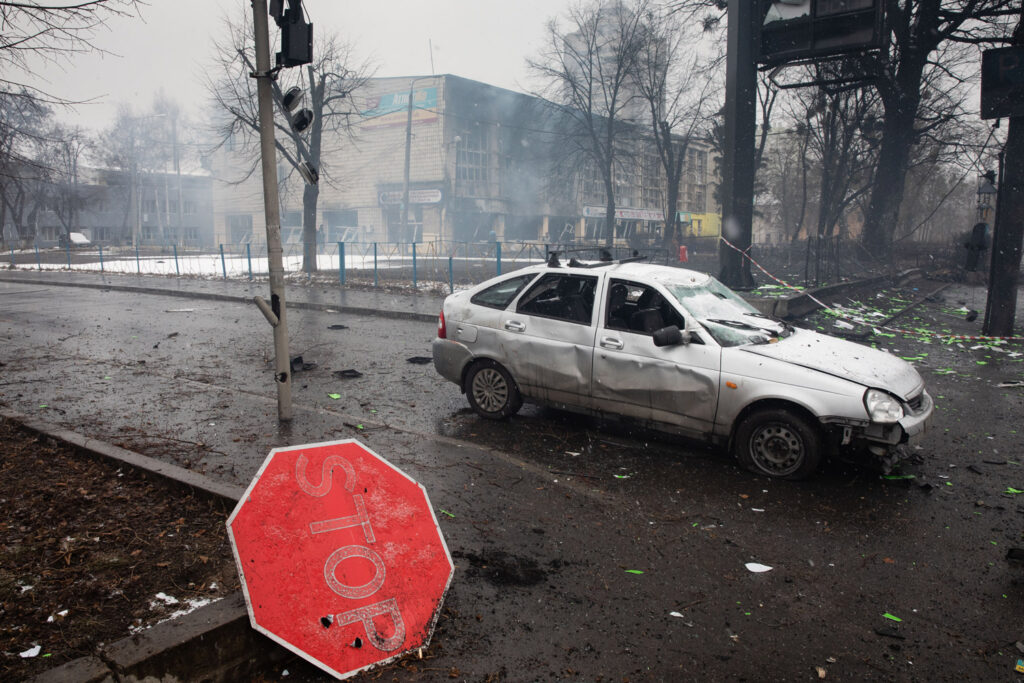Estonian World’s long-time contributor Reelika Virunurm considers Germany her second home but is severely disappointed in the current highest-ranking German politicians and their unwillingness to act decisively in dealings with Russia, an unwillingness which has consequences for Ukraine, Estonia and all of Europe.
After having lived almost five years in Germany, I remain very close to its business market, media sphere, and first and foremost, my German friends and colleagues. While I know that kind-hearted and well-organised German people across the country are personally doing everything they can to help Ukraine, it seems that the most powerful German politicians of then and now are regrettably choosing the wrong side of history.
There can be no “peace” or diplomatic relations with Russia until the war is over and all Ukrainian damage is compensated for, and it is very dangerous for Olaf Scholz, the German chancellor, and other leading German politicians to believe otherwise – take it from Estonia.
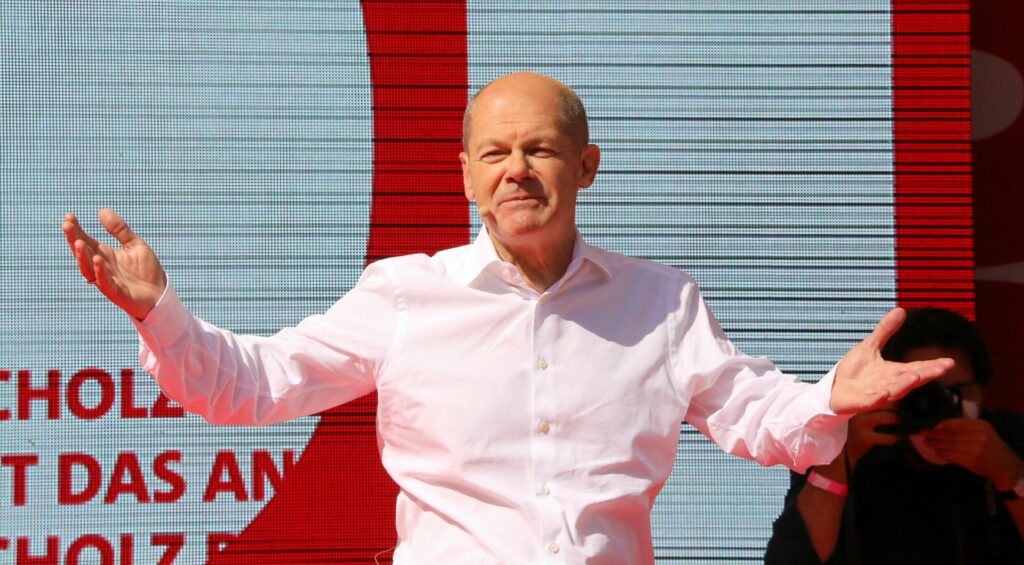
Eastern versus Western Europe
The Estonian prime minister Kaja Kallas met German chancellor Olaf Scholz in Berlin on 25 April to discuss the current state of the war in Ukraine and European measures to stop it. Kallas emphasised that although Germany has made some important decisions, none of the measures presently being taken will be enough, and it is crucial that the next sanctions on Russia cover all of its oil and gas exports as well. Germany is very reluctant to do so, and billions of euros are still flowing to Russia every month, ultimately helping to finance Vladimir Putin’s war.
Meanwhile, the Ukrainian president Volodymyr Zelesnkyy has bluntly called the payments for Russian energy nothing more than “blood money”, in an interview with the BBC. A recent heated dispute on this topic even took place in the European Parliament, with the Estonian MEP Jaak Madison accusing Germany of turning a blind eye to the raping of women and children by Russian soldiers in Ukraine to receive the cheap gas, which in turn irritated the German MEP Reinhard Bütikofer.
Madison just might be right – while the parliaments of both Estonia and Latvia officially declared the Russian “special operation” in Ukraine a genocide, the former mayor of the German city of Düsseldorf, Thomas Geisel, wrote in his blog that Ukrainians are “exaggerating the number of victims in Bucha” (where so far, the bodies of 412 murdered civilians have been found) and how the Bucha massacre “cannot even be compared to the victims of Srebrenica genocide or Dresden bombings in World War II”. His post has since been removed.
While Eastern European countries have called out the rising dangers in Russia for the past 30 years, the ignorance of many Western European countries, especially Germany and France, has reached a point of outright denial – these countries have always been happy to do business with Russia, oblivious to the dangers that we are facing now. War always means a humanitarian catastrophe, but this is a not a war, this is not a special operation – it is terrorism and mass murder of civilians.
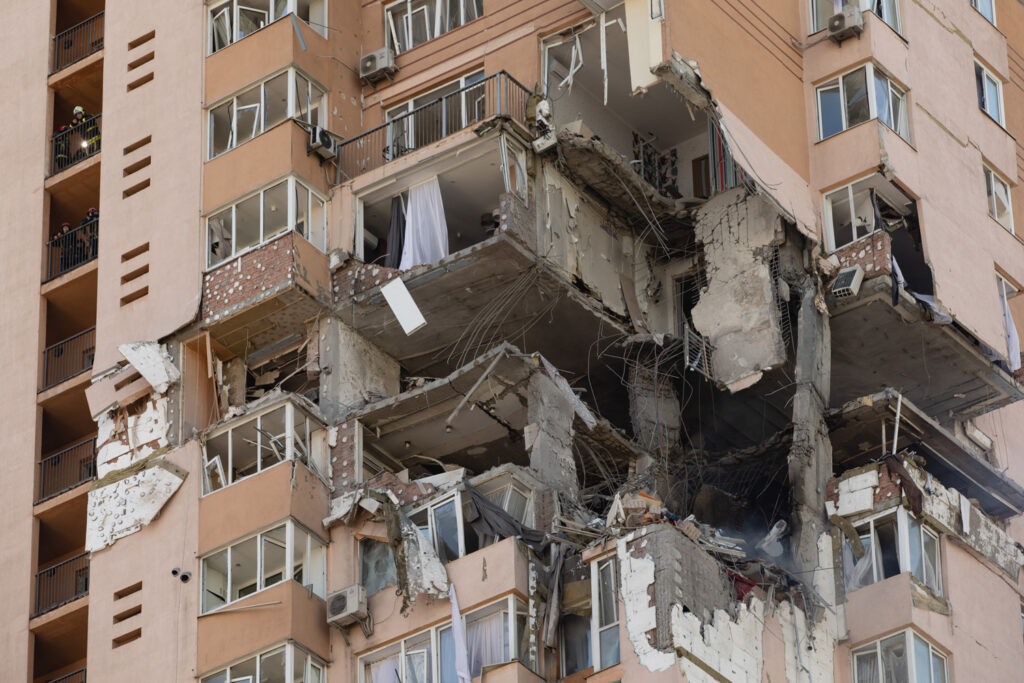
The town where I lived in Germany was Hannover, a Tallinn-sized town in the country’s north where former German chancellor Gerhard Schröder still resides. Hannover has a troubled history of its own: it once awarded an honorary citizenship to Adolf Hitler – only to take it away from the Nazi-German leader posthumously. Schröder recently relinquished his own honorary citizenship of Hannover before it could be stripped from him.
Schröder has also been the main advocate for the infamous Russian-German gas pipeline Nord Stream; he has also been one of the pipeline’s beneficiaries and is an unapologetically close friend of Putin. Perhaps one of the most infamous statements about Schröder was made by Putin’s opponent Alexei Navalnyi to the German tabloid Bild in 2021: “Putin’s errand boy who protects murderers.”
Last week, Schröder gave a self-righteous interview to the New York Times, where his main message was that he regrets nothing and that trade with Russia has not only made him rich but also Germany. “I don’t do mea culpa”, he said. The audacity of these statements can only be measured by the damage done and judged by the victims of the war.
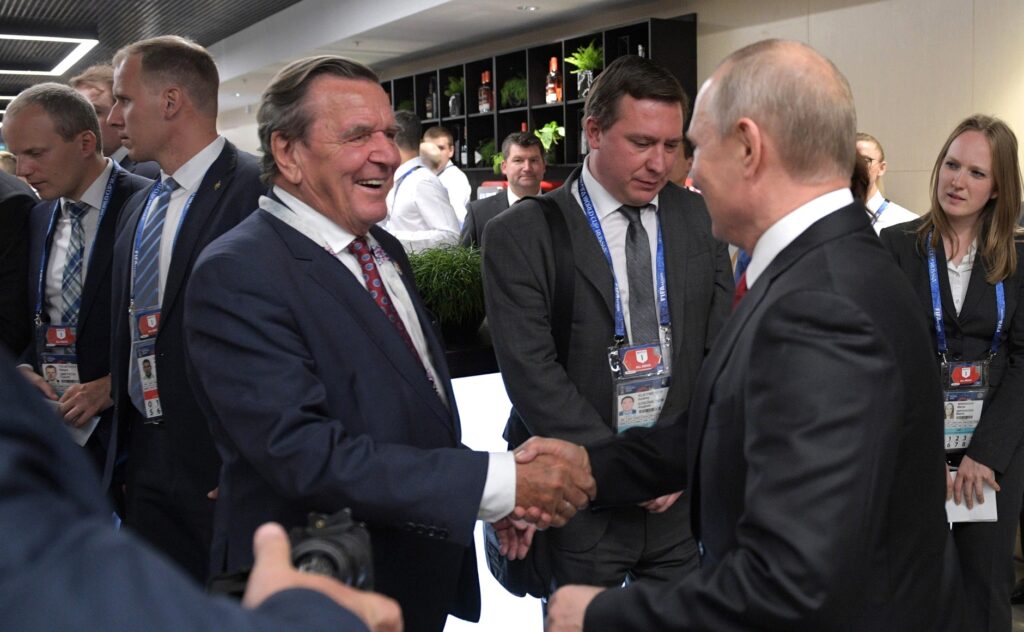
Unfortunately, the current chancellor Scholz, the German president Frank-Walter Steinmeier and Sigmar Gabriel (a former foreign minister and a former leader of the Social Democratic Party of Germany), to name a few, also prove that their actions right now are dubious and creating mistrust, to say the least.
According to the Kiel Institute for the World Economy, per GDP, Estonia has donated far more to Ukraine than any other nation, including the US, the UK and other larger European economies. Germany has an economy 65 times larger than Estonia. Faced with the atrocities of the war in Ukraine, the leader of the largest EU country should be exemplifying European values. Instead, the German chancellor is choosing the tactics of unabashed lies and twisting facts while delaying and denying crucial weapon deliveries.
“Ostpolitik” and “Putinversteher”
Despite their conflict in the Second World War, Germany and Russia have had a special relationship over the last 30 years. A lot of German journalists, politicians and business people have happily supported and spread the message that doing business with Russia makes Germany more stable and evens out the possible risks – dubbed “Ostpolitik” for short. However, the ignorance and naïveté of these and similar arguments are enough to make most countries along the NATO eastern wing simply cringe.
Money from Germany has played its role in supporting the weak economy of Russia – and has not only encouraged Putin but also made him bold enough to launch the aggression and atrocities against Ukraine.
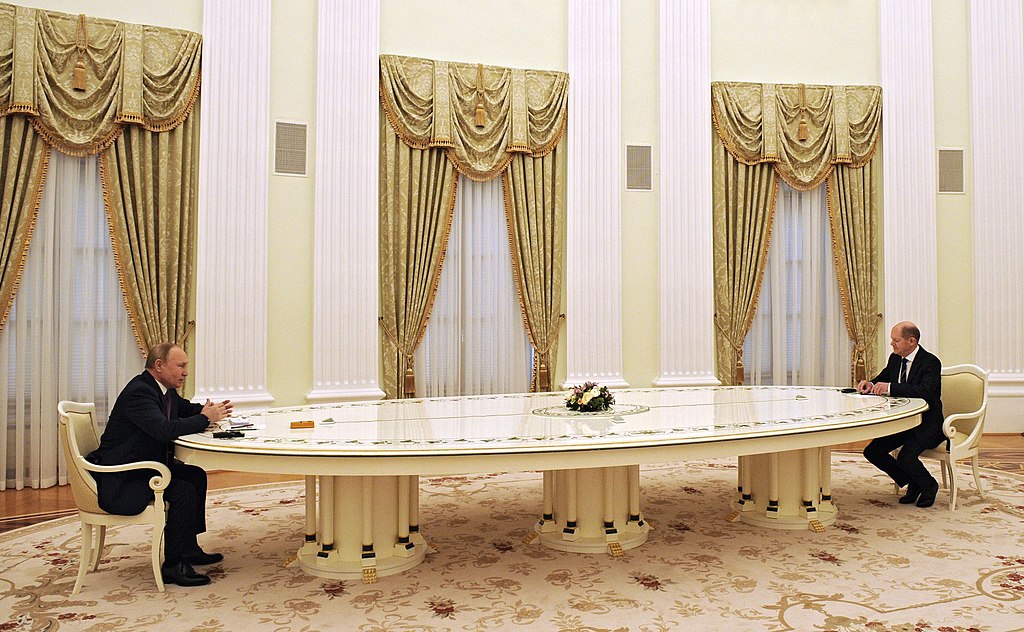
As far back as 2008, it was the current German president Frank-Walter Steinmeier who opposed sanctions against Russia when it attacked Georgia. Looking back, this might have been the right time to send a strong message to Russia from Europe and NATO – something that the Baltic countries and Poland, once again, understood right away. The general atmosphere in Germany, however, was to go back to business as usual and re-establish good relations with Russia as soon as possible, the prevailing attitude being that a tiny war cannot possibly disturb all the peaceful relations and projects between Germany and Russia.
Many of the formerly Soviet-occupied and Moscow-ruled countries in Eastern and Central Europe have warned Germany for years not to become completely reliant on Russian gas, but these warnings have never been heeded by those in power. The German media even invented a neologism, “Putinversteher”, meaning the one who understands Putin.
According to Deutsche Welle, people who could be described as “Putinversteher” would for example point out that NATO’s eastward expansion should be understood as a real threat to Russia, or that Russia has been “encircled and contained” by NATO already. Russian state-controlled and propaganda-spreading media outlets have fuelled this notion for years, claiming that Russia is a peaceful country, “only surrounded by enemies”. But as a matter of fact, if you look at the map, just six percent of Russia’s boundaries border NATO countries. The longest border that Russia currently shares with a NATO member state, at 294 kilometres (183 miles), is actually Estonia.

Actions speak louder than words
Besides all the military and humanitarian aid from Poland and the Baltic states, another small country, Slovakia, has donated their last air defence system S-300 and is also ready to send domestic-made howitzers, “Zuzana”, and old Soviet-made MiG-29 fighter jets to help Ukraine. At the same time, German chancellor Olaf Scholz claims “not to have enough ourselves”, and that “Ukrainians cannot be trained to use the equipment so quickly”. Both of these claims have been proven false by German media.
In mid-April, the vice chancellor Robert Habeck also claimed that Germany is not arming Ukraine, citing a mutual agreement between NATO countries. But by that time, seven NATO member states had already begun sending heavy military equipment to Ukraine, or confirmed that they would do so.
While the nearest and dearest neighbour of Estonia, Finland, has quickly grasped the current situation, is at the brink of joining NATO and even saw its public broadcaster, Yle, issue an apology to the Baltic states for dubbing them “paranoid and agitated post-Soviet countries” for years, there has sadly been no such reckoning in Germany.
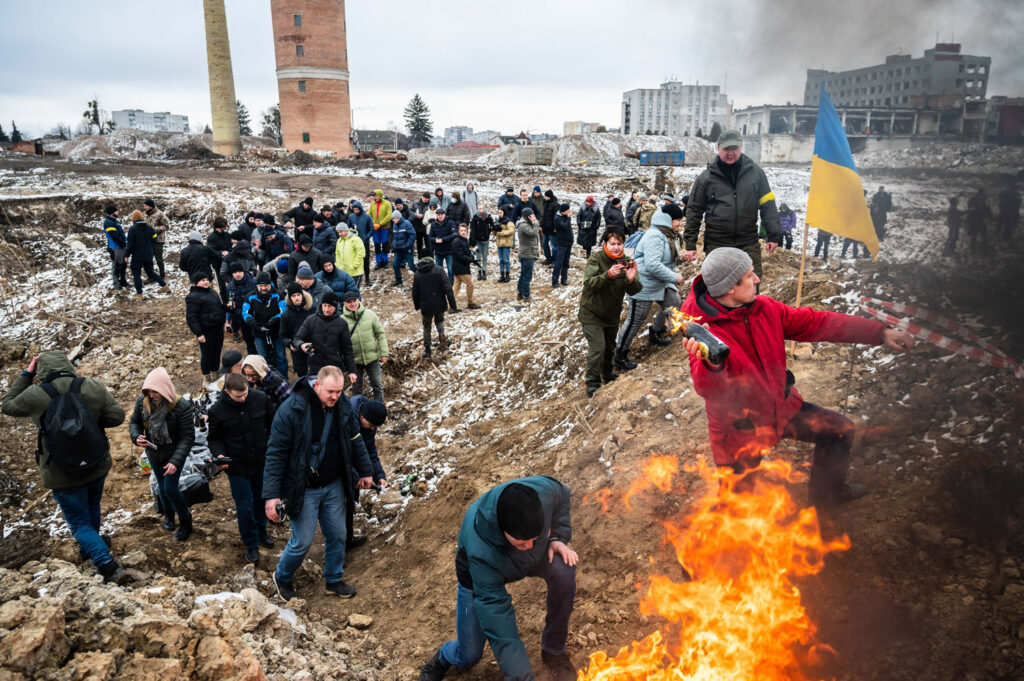
The right side of history
The lack of action and feeble excuses from Germany are completely immoral right now, when the only right thing to do is to act and arm Ukraine, so they can fight for their freedom – and let’s be honest, hopefully keep the escalation away from crossing NATO borders. There are already indications in Germany that Olaf Scholz’s inaction and faltering behaviour will cost him the chancellor’s position – but for victims of the war in Ukraine it may be too late.
Germany does deserve much better politicians right now and would do well to take some advice from Estonia who has had to endure a deluge of bad choices throughout history. You have a choice, don’t let Germany’s stance in 2022 be remembered in the history books as a timid, indecisive and cowardly country.
These are only the people in power, not the German people with big hearts helping out on the streets that I know so well. The people do have a voice and your actions count now, not when it is already too little and too late. Perhaps the most luminous German-born scientist, Albert Einstein, said it best: “The world will not be destroyed by those who do evil, but by those who watch them without doing anything.”
The opinions in this article are those of the author.

